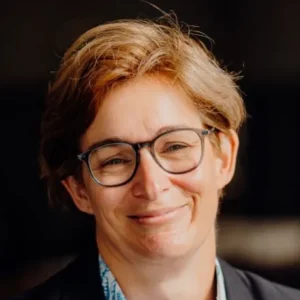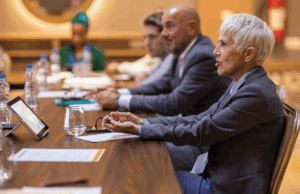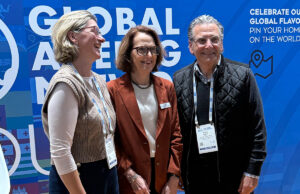Global Ageing Network Sponsors Pass It On Network’s United Nations Virtual Side Event
On Tuesday, April 7, 2020, Global Ageing Network co-sponsored Pass It On Network’s United Nations (UN) side event. Originally, the event was meant to take place in conjunction with the UN Open-ended Working Group on Aging (OEWGA), which was cancelled due to the COVID-19 worldwide pandemic. The OEWGA serves as an international forum, to provide widely enacted participation of stakeholders giving visibility to older persons. The focus of the event for the 11th session was innovations in “Lifelong Learning and Earning.” Advocates came together to share and brainstorm new norms to empower older persons to gain access to the labor market.
Jan Hively and Moira Allan worked to virtualize the event over Zoom, with Dieter Zwicky playing the emcee for the meeting. Kari Henley offered technical facilitation for over 100 participants from every continent (except Antarctica). The virtual event had two plenary sessions and four breakout sessions. The chat function enabled brainstorming amongst experts.
The office of Ambassador Martin Garcia Moritan from Argentina, Chair of OEWGA kicked off the session acknowledging the context the meeting took place in. COVID-19 has brought up the alarming phenomenon on public discourse that coronavirus is an older person’s disease, creating unnecessary stigma. COVID-19 also brought public attention to the meaningful contributions from doctors, nurses, and the health systems they work in. Rather than allowing COVID-19 to control the dialogue, the UN working group should identify all levels of challenges and strengths, need to immediately listen to older person’s voices, and address life and health. By making the labor market more accessible, the group can trigger ideas to redefine aging.
Moira Allan and Jan Hively from Pass It On Network shared concern over lifelong learning and earning problems. Currently, there is concern pension schemes globally are strained. Adults are concerned about having enough money to fulfill a life course. What guides can we turn to build our self-worth, self-esteem, and financial security? We’re living in a time fraught with breathless rate of change. We need constantly to “upskill” and “reskill” to continue playing a role in society. Yet we’re still confronted with ageism, which refuses to see contributions. Employers take this attitude. We must take responsibility for our own narratives. Rather than making comments like “I’m having a senior moment” we must ask “how to be positive ageing activists for ourselves.”
Jan and Moira introduced us to speakers listed below that opened conversations on the four topics of the event: education, employer-government-non-governmental organization (NGO) collaboration, entrepreneurship, and digital literacy.
Helen Hirsch Spence, Top Sixty Over Sixty shared that feeling of everything moving so fast affects all ages. She pointed out that trainable engineering skills could last 35 years in 1920, 10 years in 1960, but today’s trainable skills only last about 18 months. Because skills retraining has become a commodity, age is irrelevant to judge work competency. “The speed of change cannot be limited to one or two institutions,” she said. Spence reiterated we must reframe how we design our life course. As we move into the next 10-15 years, she anticipates 30-80% of all jobs will disappear. Continuing skills for 21st century learning are communication, collaboration, creativity, critical thinking, connectivity/citizenship, and community.
Joann Montepare, Lasalle University, discussed potential changes in education with age-friendly universities. She answered three questions: (1) Why do we need more age friendly institutions of higher education? Individuals work longer in their lifetime now than they used to. Higher education for all life stages can provide development in career path and earning potential. (2) What is the age friendly university initiative? Created at Dublin City University in 2012, the age-friendly university initiative was built to encourage personal development and inter-generational learning. (3) What are hurdles to establishing age friendly universities? Two hurdles must be overcome: the first is ageism. The narrative on what a college student looks or acts like is an outdated one to the reality that many older adults are returning to school, with programs like U3A. The other barrier is how higher education institutions interpret what a successful business model can look like. Institutions can be resistant to change, but in acknowledging the profitable nature of appealing to a wider student body, leaders in industry can see age-friendly universities as an exciting opportunity to navigate.
Ramsey Alwin, AARP International, discussed the future of work via collaboration. In partnership with World Economic Forum and OECD, AARP is taking a multi-prong strategy for a multi-generational, global workforce. The OECD forecasted in the next 30 years, a multigenerational workforce could increase global GDP by 20%. If not, the world may see decline because of current fertility rates/ageing rates. The partnership is working with multinational companies to develop age into diversity and inclusion policies.
Elizabeth Isele, Global Institute for Experienced Entrepreneurship (GIEE), led the conversation on entrepreneurship and empowerment. She made the point that in the current events, there is a narrative focusing on the wrong aspect of people over 60. In popular American culture, people over 60 are repetitively referred to as vulnerable, without acknowledge that people over 60 are also the people that institutions are reaching out to for their experience to help overcome the COVID-19 pandemic. She gave the example of thousands of retired persons in New York City are coming back to work in medical centers. England called for 250,000 volunteers and were overwhelmed with 750,000 volunteers offering help. GIEE is running experience incubators, bringing intergenerational groups together to solve problems. She refers to the work as an Action Tank rather than a Think Tank. By bringing these groups together to solve a problem rather than just meeting for coffee, people of all ages can be participants in their own future.
Peter du Toit, Founder of FutureWork IQ, led the conversation on digital learning and work in today’s environment. Organizations, now more than ever, must build flexible and remote workplaces. Peter put into perspective that post-pandemic, our work situation will not change. Post-pandemic, we can continue to resolve global warming issues with decreased commuting. And after the economic fall-out, many CEOS will want to cut costs, and working remotely longer-term can offer that solution. He went through seven core competencies required for lifelong learning, some of which are addressed in classes through FutureWork IQ.
Sharing Solutions
Pass It On Network solicited feedback for strategies to resolve gaps in their country’s policies on aging. Some feedback provided were existing programs, while others were suggestions. One example of an existing program was in Singapore. All Singaporean citizens over the age of 25 years old were given a SkillsFuture Credit of 500 Singapore dollars that can be used at any time in life for personal development but can only be used once. There are over 8,000 approved courses from institutions, community organizations, and public agencies, that individuals can choose from. In April 2020, the government granted a second credit for COVID-19 as people are staying home. More than 500,000 individuals benefitted from this program.
Another solution brought up from participants was in Iceland. Universities in Iceland are open to all ages. Another couple of examples were in Europe. The United Kingdom has a policy that must show how accessible universities must be to the community, with age as an explicit consideration. DIGITOL is combatting fake news in the EU with training programs.
The meeting ended with one question: What key policy change or action should be required in your country to make the right to learn and earn a reality for all older persons?
Comments to this questioned obviously varied by country. Some suggestions individuals had for their respective countries during the global lightning round of brainstorming are listed below:
- Iceland should have awareness of human resources and flexibility in retirement.
- Somalia would like to partner on social protection and inclusion for older persons.
- Canada and Ireland should shift societal narratives away from ageism, including a mindset shift from health to wealth.
- Austria could create programs to enhance language skills in older persons.
- The United States should adopt universal basic income for adults to work in whatever form they want, which would recognize similarities in paid and unpaid labor.
- One participant recognized that the United Nations could better incorporate the youth voice on the discussion of developing ageing strategy.
Global Ageing Network appreciates the opportunity to sponsor such a wonderful event. For more information about Pass It On Network, you can visit their website here.

Recently Added
January 22, 2026
January Statement from Vic Rayner
November 18, 2025




